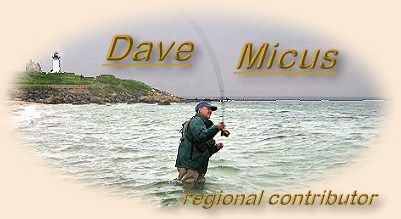|
Driving to work, I listened on NPR as one of
their National Geographic Radio Expedition crews
prepared for this segment's adventure. Apparently,
little is known about the migratory behavior of the
giant blue fin tuna, and this crew was going to tag
giant blue fins with tracking devices so that the
fish could be followed via satellite. Commercial
fishermen generally harpoon tuna, which wouldn't work
here unless they wanted to track the fish sinking to
the bottom of the ocean. What they have to do, then,
is catch the fish on a rod and reel, insert the
tracking device, and let it go. As I listened it
suddenly hit me - catching and releasing giant blue
fin tuna on a rod and reel was their job.
They were actually getting paid to do this.
Now I've had a lot of jobs in my lifetime, but never
anything like this. The most memorable was my first
real job at the steel mills in Chicago, which, for
someone growing up on the South side, was not only a
likely career path but the only career path.
When you looked out of the classroom windows of my
high school you could literally see the mills, and
the standard reply, when asked what you planned to
do after graduation, was "I'm going to the University
of Wisconsin Steel," which was funny, but, in retrospect,
also poignant and sad.
I worked at the seamless tube mill that made pipe
for the oil industry by drilling out a solid six-foot
billet of steel fresh from the blast furnace. The
red-hot billet was driven into a machine with a
rotating drill bit, backed out and the bit changed,
and drilled again. The process was repeated and
the six-foot solid steel billet, with a radius of
maybe 8 inches, ended up being a 30-foot long
seamless pipe with a radius of 15 inches.
It was someone's job to change the drill bits,
swinging the old bit out with huge metal tongs
supported by a chain, grasping the new bit with
the tongs, and swinging it in place. These guys
were working within inches of molten metal, and
even in the dead of Chicago winters wore sleeveless
t-shirts. The work was so demanding that they
would work a half hour on, then have a half hour
off, and they all had huge heat blisters and
festering sores from working so closely with
the red-hot steel. Of course it was a job that
everyone aspired to because of the 4-hours-off-a-day
benefit.
Another aspiration was to work so long at one
particular machine that it became rote. By doing
so, you could come to work drunk. There was one
machine operator who became so adept at working
drunk that the foreman was heard to say, "If he
ever shows up sober, I'll have to fire him."
My first real job at the mill, after six weeks of
being a laborer, which means you could be asked to
do anything and was really a way to weed out the
weak, was scrap cutter. Occasionally the seamless
pipe would be rejected; some defect in the steel,
or a bad transition in swapping the drill bit, would
cause the pipe to kink or split. These rejects
would be moved by overhead cranes with a huge
electro-magnet (the seamless tube mill was one
of seven mills at Republic Steel, and was bigger
than the Fleet Center in Boston) to the scrap yard.
There, I would take an acetylene torch and cut the
pipe into four-foot sections. When all of the scrap
pipe was cut, the cranes would haul it away to be
melted, formed into billets, and used again.
This was considered a great first job, and the
foreman of the laborers, a huge fellow known as
'Big Man,' shook my hand as if I'd just received
a college degree. And I have to admit that I
liked the work. I was by myself, which made
no difference because it was impossible to talk
anyway due to the noise (we wore earplugs, hard-hats,
safety glasses, and metal-tongued boots), and the
only conversations I ever had was when a fellow
mill rat would lean close and yell "F---- this place,"
loud enough to hear. I would arrive at work, see
exactly what I had to do, and tackle it at whatever
pace I chose.
Of course there were some drawbacks. The torch
had a lever much like the one on an air pump at
a gas station with the exact same purpose. As
you cut the pipe you held down this lever slightly
to blow away the melted steel. If you didn't, the
steel would instantly harden again, sealing where
you had just cut. The problem was keeping the right
amount of pressure on the lever-too little and the
steel hardened; too much and the melted steel sprayed
everywhere, getting down your gloves, on your face,
and down the back of your neck. The worst was if
you sneezed. Then you'd inadvertently press all
the way down on the lever and send a shower of
molten steel everywhere. I still have a few burn
scars from allergy season.
You also had to be conscious of the physics involved,
things like angle of repose. The scrap pipes would
be piled every which way, and you had to analyze the
stacking and begin cutting a pipe that wasn't, say,
the keystone that would bring the rest of them
tumbling down. One time I was cutting a pipe with
a big kink and when the four-foot section I was
cutting fell off, the other 26 feet of pipe rolled
360 degrees. Unfortunately, I was sitting on it at
the time, but didn't get seriously injured.
After cutting pipe for a while I was promoted to
recorder, a paper work job within the mill that
recorded production, rejects, and downtime. I
walked around with a little pad of paper and a
pencil, writing everything down. And while this
was maybe the cleanest job in the mill, I still
managed to get filthy by just being in the building.
Within a day of my promotion to recorder I was
cornered by the union shop steward and a big,
burly worker. There are two reasons for downtime;
when a machine malfunctioned, or when a worker made
a mistake that caused a machine to malfunction. I
was supposed to differentiate in my report, as the
mill would discontinue paying employees for the
duration of downtime caused by human error. The
shop steward and burly worker assured me that, in
spite of how it might appear, the cause of downtime
was never human error. That sounded reasonable to
me, and every downtime I ever recorded was due to a
machine malfunction.
I left the United Steel Workers to become a Teamster,
and it was a good thing I did when I look at the
dismal state of the steel industry today. The
decline was predictable simply from the fact that
I worked there; the men in my family have a long
history of being employed by industries doomed
to demise (my father worked for the railroad,
previous generations were Pennsylvania coal
miners), and I think it could be used as an
economic indicator to know when to sell off stocks.
I left the Teamsters to go to college, where I
worked as an orderly in an emergency room; left
that for grad school with a brief stint as a
security guard in a casino, nasty work where
alcohol and gambling combined to make people
very ugly. From there I drifted into higher
educational administration, where I remain today.
While not quite Thoreau's "life of quiet
desperation," it's not been being paid to
catch giant fish, either. But, inspired
by the NPR story, I'm putting my resume
together in the hopes of spending the rest
of my working life doing something I really
enjoy.
Dear National Geographic Society,
I note that you are in the process of
tracking giant blue fin tuna, and I'm
writing to see if you might have any
openings...
~ Dave
About Dave:
 Dave Micus lives in Ipswich, Massachusetts. He is an
avid striped bass fly fisherman, writer and instructor.
He writes a fly fishing column for the Port City Planet
newspaper of Newburyport, MA (home of Plum Island and Joppa Flats)
and teaches a fly fishing course at Boston University.
Dave Micus lives in Ipswich, Massachusetts. He is an
avid striped bass fly fisherman, writer and instructor.
He writes a fly fishing column for the Port City Planet
newspaper of Newburyport, MA (home of Plum Island and Joppa Flats)
and teaches a fly fishing course at Boston University.
|



